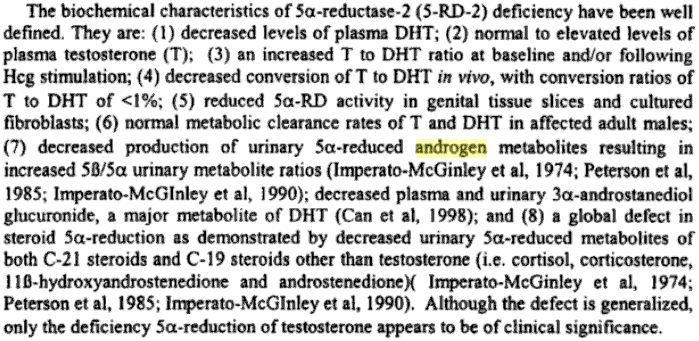This discussion may belong in the “Finasteride Studies” section; but I wanted to have this read by as many people on this forum as possible. I’m reaching the end of my emotional and physical rope after having read US Patent 5962442. Basically, it’s Merck’s own documentation of Finasteride, written by the inventors and is titled ominously as “Irreversible Inhibition of Human 5a-Reductase”. Emphasis on “irreversible”.
The link for the document has already been posted on this site, but I think it’s good to let those who are still considering the drug, or who think it’s something they can “try” it - to read this and then DON’T!
google.com/patents?id=x_MXAA … ng#PPA7,M1
In it, the creators proudly outline the process through which they devised a drug which is “slow-binding” (which in drugs normally allows for reversible effects) but in the case of Finasteride, turned out to “form an essentially irreversile enzyme-inhibitor” (page 3) that binds to the enzyme as a “Michael acceptor”. The company seems to have been unaware of how powerful it was until it was put on clinical trials, at which point they must have realized that the drug was less a reversible, temporary therapeutic type but more a “novel mechanism-based irreversible inhibitor of 5a-reductase” in the body. Now considering that 5a-reductase is not just an evil enzyme that kills hair, but also regulates our hormones, gives us our sex-drive, our muscles, our mental acuity and general health as well - purposely making a drug irreversible with the goal of suppressing 5a-reductase permanently is TOTALLY INSANE. Irreversible would mean that nothing that anyone of us do will accomplish anything more than alleviate symptoms. Please correct me if I’m wrong as I’m currently in a very down state after reading this article through; but it’s pretty clear that nothing short of the death of this enzyme (meaning the death of the host) will change the situation. From the article, which is not advertising or marketing, but a cold clinical study of an in-house product - it seems pretty clear that Finasteride destroys the body’s ability to produce the enzyme from the prostate ever again. The thought of loosing the ability to have sexually powerful feelings in the brain and then the body, of having good health and mental thought impaired permanently is making me feel slightly suicidal.
Currently, I’m in a very depressed state with absolutely no libido (I don’t even respond to porn, which for men is usually the most potent visual stimulant for sexual response). It’s frightening, in a very primal and basic way - like watching the sun rise and feeling absolutely no warmth from it.
I have no idea at this point. I’ve lost faith in a solution. It seems like we’ve all taken a mild form of cyanide and have to deal with it.
I apologize for the negativity of this post; but I’m angry at myself and at Merck. I’m angry for why I said “yes” to a doctor’s suggestion that I try a drug I had not even asked for or considered. I’m just not feeling very hopeful right now, after spending most of my life living healthy, taking care of myself and trying to do the right thing.
TB

